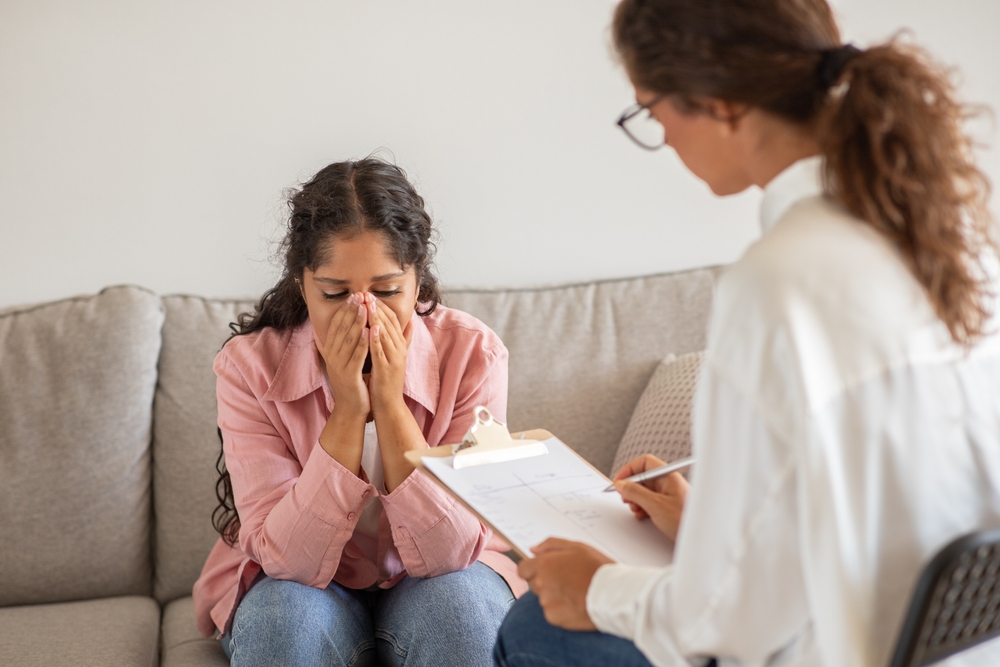Last Updated:
June 20th, 2025

Without the love of our families, where would we be?
We understand that every dynamic is different and that not everyone has a family, yet we were all born into one and the love our families showed us in childhood made us the people we are today.
We want to take a moment to express our unwavering appreciation of families in the role of addiction recovery, for without their help, many of us simply wouldn’t be here.
Families as the “quiet strength” behind recovery
In the recovery process, focus, care and attention are primarily given to the recovering person. They become the focal point of the healing journey as their body medically detoxes, and they develop coping mechanisms for a healthier future.
Yet, behind them, just out of the frame, are the parents, siblings, partners and children who kept believing that change was possible and that a brighter tomorrow exists. The families of recovering people are too often the unsung heroes of the healing transformation. The love given by family is like an emotional scaffolding that helps a person construct a safer home. They often carry out the smaller tasks, like driving to appointments and hearing their loved ones out, though they may hide their tears.
A drug or alcohol addiction thrives in isolation and festers in a person who cuts themselves off from their friends, family and the world at large. On the other hand, there are times when family members need to decide to set boundaries and distance for the greater good.
Yet one thing remains certain: that the love a family shows to their loved one struggling with addiction can be the thread that keeps them holding on. We are eternally thankful for the countless instances families have saved a person before an addiction becomes fatal.
How addictions impact entire families
An alcohol or drug addiction rarely, if ever, only affects the person with a substance use disorder. The knock-on effects of an addiction can be devastating for every aspect of the family unit.
Emotional turmoil and shifting roles
Addictions will bring many family members to the limits of their emotions. There may be nothing more heartbreaking for a parent to witness than their own child ravaged by an alcohol or drug addiction, leading to potentially fatal consequences. Also, siblings struggle tremendously as their brother or sister becomes addicted, often developing a “co-parenting dynamic” to support their loved one.
The looming fear of relapse and the glimmer of hope
Even when a loved one enters recovery, families often carry a quiet dread: What if they relapse? This fear can linger in the background of every phone call, every silence, every small behavioural shift. It’s not paranoia—it’s a reflection of what families have already lived through.
Never-ending emotional resilience becomes exhausting. Family members often struggle and feel stuck between feelings of wanting to trust again and being afraid of getting their hopes up.
And yet, hope endures. Even after a potential relapse (which does not mean complete failure), families continue to show up with love, care and a desire for healing. As difficult as alcohol and drug addiction recovery is, families are often the thread that keeps healing possible, no matter how fragile the situation.
The financial burden of addiction
Another overlooked and painful aspect for many families helping an addicted loved one is the financial involvement. Money may be lost to substances, legal fees, repeated treatment attempts, or job loss. For loved ones, this can mean covering rent, bailing someone out of legal trouble, or paying for medical care and rehab.
One relapse can lead to financial strain again, or a dangerous pressure on the relationship. Yet even for many family members who erode their savings, they still continue to help where they can. The love they show through financial support deserves deep appreciation.
What does family therapy look like in practice?
A professional recovery process usually involves some kind of therapy to help with the emotional impact of a drug or alcohol addiction. Expert therapists employ programmes of cognitive behavioural therapy (CBT) or motivational interviewing (MI) to help a person develop their confidence or work through experienced traumas.
One of the best types of therapy that helps heal or rebuild a family dynamic is called “family therapy.” Family therapy helps each member set boundaries. This is not used as a form of punishment, but as an act of care, for both parties. Boundaries can protect your well-being and encourage accountability in a loved one. These boundaries are not barriers or lines drawn in the sand, but are more like bridges toward mutual respect, which is integral in healthy family dynamics.
Family therapy also reinforces the idea that your support doesn’t mean sacrificing your own happiness. It helps family members develop strategies to prepare loved ones for the possibility of relapse. Members learn that a setback doesn’t mean complete failure, and progress can still be made towards a sober future.
When love becomes action: the role of intervention
For many families who have a member who suffers from a severe addiction, there may arise a time when quiet support and gentle nudges are no longer enough to make a change. When addiction works more deeply, an intervention can become necessary.
An intervention is a structured conversation that helps a loved one recognise the severity of their addiction and accept treatment. It creates a clear, compassionate space where family and close friends express concern and offer support with purpose.
Often guided by an addiction professional, a well-prepared intervention includes:
- Choosing the right people to be involved
- Agreeing on what to say and how to say it
- Presenting a clear treatment option
- Setting boundaries if the offer is refused
Even if treatment isn’t accepted straight away, interventions can plant a seed. They help the person understand the impact of their behaviour and remind them that support is ready when they are.
Done with planning and compassion, an intervention can mark the first real turning point that a loved one needs.
Familial hope, healing and the journey forward
Families of a person with a substance use disorder often carry emotional scars. However, they also carry a deep resilience and insight into the life of the person in need of help. The love of a supportive family can be the guiding light in the darkest times.
Even after setbacks or relapses, families can rebuild trust and create new ways of connecting. Support groups, counselling and boundaries help support your loved one and turn pain into progress. If your family is still in the thick of it, know this: healing is rarely quick or linear, but it is always possible.
Where can I find help for a loved one’s addiction?
If someone in your family is struggling with alcohol or drug addiction, you don’t have to carry the weight alone.
At UKAT, we offer compassionate, expert-led support for individuals and families alike. Our staff are trained to deliver medical detox, family counselling and intervention planning, helping your loved one begin their recovery with structure and care.
We know how painful it can be to support someone you love through addiction. That’s why we’re here: to guide you through the process and help your whole family move forward.
Reach out today. One conversation could be the turning point for the person you love most.




